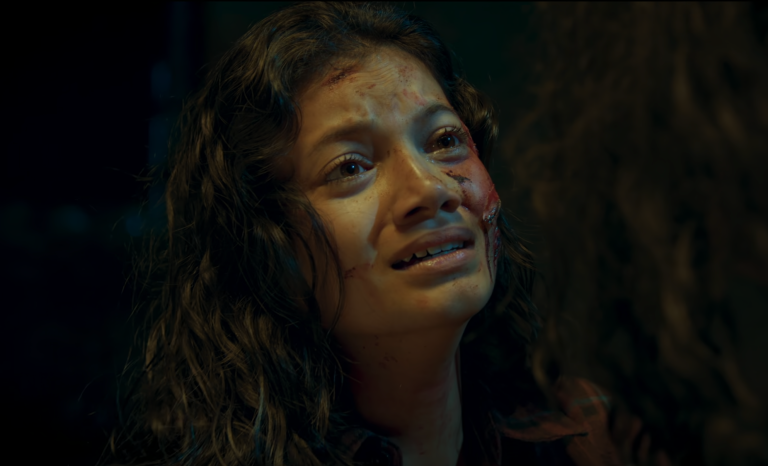Bardo, False Chronicle of a Handful of Truths Review: There are very few filmmakers today who can be given some leeway to experiment raggedly with storytelling. There are few who even try. Alejandro.G. Innaritu has earned enough cinema credit to turn conventions, genres, and the entire experience of watching a film upside down. And to be fair, he often does. Modern cinema has turned into a safe space well-regulated by newly acquired sensibilities in the zenith of the digital revolution. Netflix’s newly released Bardo, False chronicle of a Handful Truths, or simply Bardo, settles quite nicely beyond those contours in the first few minutes. But perhaps in defying those vile accusations of the ordinary, Innarita’s fantastical effort becomes a tad too distant from its viewer & sways towards being self-absorbed.
Recommended: Every Alejandro Iñárritu Film Ranked
Bardo revolves around Silverio’s riveting homecoming to Mexico with his family. But most certainly, the film begins as Silverio starts remembering and doubting. The autobiographical parallels with its creator are obvious, but according to Innaritu, Bardo transcends any labels that try to simplify its imagination & ambition. The title, interestingly, refers to a Buddhist belief in a space existing between death & rebirth. Bardo’s audacious, humbling, and mostly frustrating disconnectedness perhaps validates that explanation.
The creative genius to even imagine something like this must be applauded. Innaritu’s universe is so vividly alive that it hardly feels created. On the contrary, it seems to assume life from the kaleidoscopic, three-dimensional world around us. That seamlessness, though, becomes less impressive as you start wondering when it will all fall into place. The marked dichotomies in his narrative surface with a hallucinatory dramatic effect. In the skeptic’s mind, they might even take the shape of an unnecessary gimmick to overwhelm and hide the work’s inherent flaws dishonestly.
A continuing dilemma for viewers is whether or not to engage with Innaritu’s fallacy. His film is immeasurably powered with the gift of imagination that telling fiction from the truth becomes a challenge. There are many voices that end up dictating Bardo: space and storytelling. It is almost like they each have a different idea of what a moment should be and where it should lead the narrative. All they end up doing is distorting your reference points to grasp the plot. In fact, there’s hardly a plot. Nothing seems enough quite to encapsulate and shape Innaritu’s flowing philosophical dissection of anthropological equity. There are no patterns or repetitions. Just random manifestations that pop up without notice.
Seeing various parts of the film almost gives it an anthology format. They really live on the extremes in Innaritu’s vision, so much so that there’s hardly a connection at all. Such is the wafer-thin distinction that they could be mistaken for delirious, nitpicked harangues about different things, even though they might be some of Innaritu’s and an entire culture’s most personal and deepest expression of emotion. The “handful truths” are all defined by an existential dread that Silverio gradually slips into. It is not just about the imposter syndrome that Lucia declares Silverio of glorifying but about everything that he believes to be true.
Bardo features shades of commentaries of mostly all academic endeavors – social, political, economic, and cultural. The depth of ideas and discussions give it the appearance of a conference of elite minds from academia, each bringing with themselves their ocean of experiences and expertise, albeit with an undertone of hubris emanating from their status and position. That conflict is necessary and perhaps intentional to connect the outlets to the central existentialism.
Bardo is a canvass of history, the present, and the frightening reality we all dread becoming in the future. It is Innaritu’s uncovering of and homage to the most essential truth of mankind: hypocrisy and its acceptance in the face of convenience.
It will no doubt go down as a timeless classic in pop culture and a reference point for outsiders looking from the outside in to better understand themselves and those around them.
But in terms of watchability, the task of breaking it down to understand and make sense is endlessly impossible. Even the purists will find Bardo’s expansive personality and iconic imagery to be a bit too tedious. There’s a limitlessness to appreciate, like Everything Everywhere, yet altogether it is what ends up suffocating the final impression. A masterpiece no one will like, but every lover of cinema must watch it.







![The Edge of Seventeen [2016] Review : Warmly Intimate and Utterly Lovable](https://79468c92.delivery.rocketcdn.me/wp-content/uploads/2017/02/edgeof17header.jpg)
